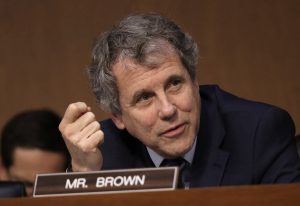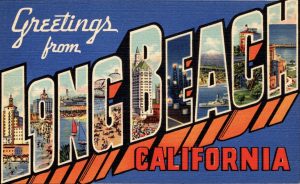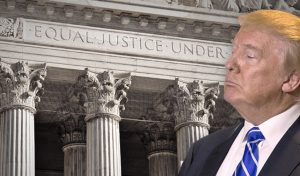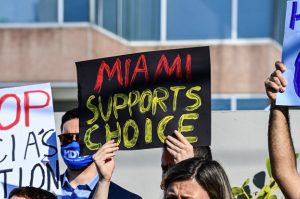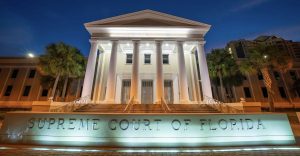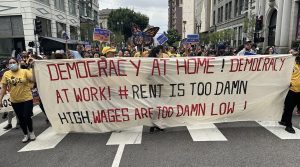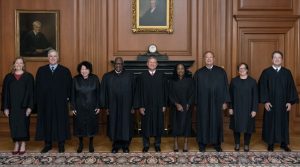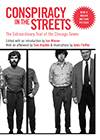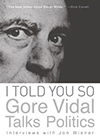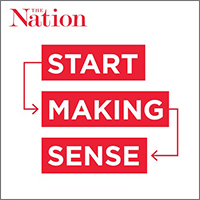Jews Against AIPAC—Plus, Free Speech on Campus
Listen HERE
In the campaign to end American funding for Israel’s war in Gaza, a key front is the fight against AIPAC. This week, more than a hundred prominent American Jews have joined in a statement opposing AIPAC and its efforts to defeat Democratic candidates who have criticized Israeli government policy toward Palestinians. The signers include author Ariel Dorfman, actors Elliott Gould and Wallace Shawn, and Ben Cohen of Ben & Jerry’s. Alan Minsky, Executive Director of Progressive Democrats of America, is on the podcast to explain.
Also on this episode: David Cole, National Legal Director of the ACLU, makes the case for freedom of speech on campus and against cancel culture, starting from the confrontation between Elise Stefanik and the presidents of Harvard, MIT, and Penn.
Transcript HERE 3-21-2024
Why Dems are Smiling: Harold Meyerson; Jews v. AIPAC: Alan Minsky; Free Speech on Campus: David Cole
Listen HERE
In the Ohio primary this week, Sherrod Brown got the opponent he wanted – a MAGA car salesman who’s never won anything. Harold Meyerson comments.
Plus: In the campaign to end American funding for Israel’s war in Gaza, a key front is the fight against AIPAC. This week, more than a hundred prominent American Jews have joined in a statement opposing AIPAC and its efforts to defeat Democratic candidates who have criticized Israeli government policy toward Palestinians. The signers include author Ariel Dorfman, actors Elliott Gould and Wallace Shawn, and Ben Cohen of Ben & Jerry’s. Alan Minsky, executive director of Progressive Democrats of America, will explain.
Also David Cole, national legal director of the ACLU, will make the case for freedom of speech on campus and against cancel culture, starting from that confrontation between Elise Stefanik and the presidents of Harvard, MIT, and Penn. 3-21-2024
What the Polls Get Wrong About Biden—Plus, Turmoil in Haiti
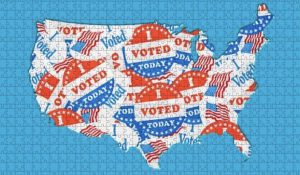 Listen HERE
Listen HERE
After gangs took over most of Port-au-Prince, Haiti’s acting prime minister, Ariel Henry, agreed to step aside. Longtime Haiti observer Amy Wilentz analyzes the forces at work shaping the country’s next steps.
Also on this episode: The polls and the pollsters are missing the political potential in 9 million people who have turned 18 since the last election. Steve Phillips is on the podcast to explain. His book How We Win the Civil War is out now in a new edition, updated for the 2024 election.
Transcript HERE 3-14-2024
The Long Beach Labor Left: Harold Meyerson; New Voters: Steve Phillips; Haiti: Amy Wilentz
Listen HERE
Thanks to a referendum passed by Long Beach voters, hotel workers there will now get the highest minimum wage in the nation – Harold Meyerson comments.
Next: After gangs took over most of Port-au-Prince, Haiti’s acting prime minister, Ariel Henry, agreed to step aside. Long-time Haiti observer Amy Wilentz analyzes the forces at work shaping the country’s next steps.
Also: The polls and the pollsters are missing the political potential in 9 million people who have turned 18 since the last election. Steve Phillips explains – his book, ‘How We Win the Civil War,’ is out now in a new edition, updated for the 2024 election.
Plus: From the archives: Katha Pollitt learned to drive at age 51 – she wrote about that experience for The New Yorker; and in 2015, she was played by Patricia Clarkson opposite Ben Kingsley in the film version, Learning to Drive. This interview was first recorded in 2007. 3-23-2024
Biden After Super Tuesday, plus A Voting Rights Amendment
Listen HERE
After Super Tuesday: John Nichols reports on the evidence of weaknesses of both Biden and Trump, as well as some signs of strength, in the wake of voting in primaries in 16 states.
Also: Now is the time to add the right to vote to the constitution – that’s what Richard Hasen says. And, he argues, there are good reasons why Republicans could support that–maybe not this year, but sometime soon. Rick is professor of law and political science at UCLA and author of the new book “A Real Right to Vote.”
Transcript HERE 3-7-2024
How the Supremes Are Helping Trump: Harold Meyerson; After Super Tuesday: John Nichols, Right to Vote: Rick Hasen
Listen HERE
The presidential election began for real this week – and the Supreme Court is once again involved in presidential election politics – helping Trump – Harold Meyerson comments.
Also: After Super Tuesday: John Nichols reports on the evidence of weaknesses of both Biden and Trump, as well as some signs of strength, in the wake of voting in primaries in 16 states.
Plus: Now is the time to add the right to vote to the constitution – that’s what Richard Hasen says. And, he argues, there are good reasons why Republicans could support that – maybe not this year, but sometime soon. Rick is professor of law and political science at UCLA and author of the new book “A Real Right to Vote.” 3-3-2024
Abortion could make Florida a swing state in 2024; plus ‘Ukrainians in Exile’
Listen HERE
An abortion rights amendment to Florida’s constitution has gotten enough signatures to qualify for the November ballot. Now it’s up to the state’s supreme court to decide whether people will get to vote on it, potentially transforming the electorate there in November. The Nation’s abortion access correspondent, Amy Littlefield, is on the podcast to report.
Also on this episode of Start Making Sense: This week is the second anniversary of Russia’s invasion of Ukraine. To commemorate the anniversary, The Nation has released a new documentary short film, Ukrainians in Exile. We’ll speak with the filmmaker, Janek Ambros.
Transcript HERE 2-29-2024
Florida Abortion Politics: Amy Littlefield; AIDS in the shadows: Kai Wright & Lizzie Ratner; Opium history: Amitav Ghosh
Listen HERE
An abortion rights amendment to Florida’s Constitution has gotten enough signatures to qualify for the November ballot. Now, it’s up to the state’s Supreme Court to decide whether people will get to vote on it, potentially transforming the electorate there in November. The Nation’s abortion access correspondent, Amy Littlefield, reports.
Plus: Stories from the early days of HIV & AIDS: that’s the focus of a new podcast Called Blindspot: The Plague in the Shadows. It’s about how the epidemic decimated poor communities of color – and about the people who refused to stay out of sight. WNYC’s Kai Wright and The Nation’s Lizzy Ratner explain.
Also: The blue-blood families that made fortunes in the opium trade: Amitav Ghosh traces the origins of much of the wealth for the 19th century New England elite. His new book is called Smoke and Ashes. 2-29-2024
“Renters are the sleeping giants of LA politics,” plus the Hidden History of AIDS
Listen HERE
A political battle is underway in Los Angeles, where landlords, multi-millionaires, and the police are trying to defeat the leading progressive on the city council. Their key issues are protection for renters and new taxes on mansions.
Also on this episode of Start Making Sense: A new podcast brings us stories from the early days of HIV & AIDS. It’s about how the epidemic decimated poor communities of color and the people who refused to stay out of sight. WNYC’s Kai Wright and The Nation’s Lizzy Ratner are behind the new show, Blindspot: The Plague in the Shadows.
Transcript HERE 2-22-2024
Good News from the Supremes: Harold Meyerson; LA politics: Peter Dreier; Haiti News: Amy Wilentz
Listen HERE
The Supreme Court has decided NOT to challenge rent control – a huge victory for the progressive renters’ rights movements across the country. Also, the Supreme Court will leave in place the diversity-oriented admissions plan for Thomas Jefferson High School – Harold Meyerson comments.
Next: A political battle is underway in Los Angeles, where landlords, multi-millionaires, and the police are trying to defeat the leading progressive on the city council. Their key issues are protection for renters and new taxes on mansions. Peter Dreier has that story.
Plus: The latest US moves in Haiti are framed in democratic rhetoric but are deeply anti-democratic in their effect. Amy Wilentz is on the podcast to explain. She’s written two books about Haiti, most recently the award-winning Farewell Fred Voodoo. 2-22-2024

